Episode 91: Board Meetings | Do Climbing Gym Grades Matter?
In this episode, in the midst of a gym tour, Nate and I sit down to discuss how we feel about climbing gym grades. Do they matter? Should they be taken seriously? How do they relate to outdoor grades? And possibly most important, what the hell do we do with them?
Most of us have an opinion, and frankly, I've always found the continuous argument about grades to be pretty entertaining. It's about as pointless as arguing politics and religion, as I'm not sure a mind has ever been changed. Pointless or not, these arguments aren't disappearing anytime soon, so we thought we'd throw our opinions into the ring as well, just to add to the pool of confusion.
FULL EPISODE TRANSCRIPT:
Kris Hampton 00:00
What's up everybody? I'm your host Kris Hampton.
Nate Drolet 00:01
And this is Nate Drolet.
Kris Hampton 00:01
And together we form G Unit. You must know what G Unit is.
Nate Drolet 00:03
Yes.
Kris Hampton 00:03
What?
Nate Drolet 00:03
Guerilla Unit.
Kris Hampton 00:03
Okay. Just making sure. Are we Guerilla Unit, U-E-R-I ? Or O-R-I ?
Kris Hampton 00:18
Ooh, because we're climbers....it would be gorilla
Kris Hampton 00:26
Yeah. See what happened there?
Nate Drolet 00:32
I see what you did there.
Kris Hampton 00:32
Yeah. It's, I'm so smart. We are in, well, we're actually in Arlington right now, Virginia. But we've been in Alexandria, Virginia for the last four nights. Is that right?
Nate Drolet 00:39
That sounds right.
Kris Hampton 01:11
Last four nights. We've been doing some workshops out at Sport Rock, Alexandria and it's been pretty fantastic. The community here is really great. The gym has been you know really open to helping us with whatever we need. They've kind of rolled out the red carpet, which makes me feel like a superstar.
Nate Drolet 01:45
Yes,
Kris Hampton 01:45
You're already a superstar.
Nate Drolet 01:47
Pretty much.
Kris Hampton 01:47
With that new Marina Inoue atattoo you've got.
Kris Hampton 01:49
Yeah. Huge shout out to Marina Inoue.
Kris Hampton 01:51
Yeah, the cattle rabbit.
Nate Drolet 01:52
Yes. What? Do you know what podcast episode she was?
Kris Hampton 01:55
I don't know what episode she was, but it was somewhere around 65.
Nate Drolet 02:02
Yeah. That was a good episode.
Kris Hampton 02:05
Right around the New Year.
Kris Hampton 02:07
Yes, that sounds right. But yeah, no, she's an amazing tattoo artist. Super psyched.
Kris Hampton 02:14
Yeah, she's a badass. She did a great job. Good job, Marina. And while I'm at it, huge thanks to all the people who've come out to the workshops. We've had a bunch of youth competitors, which has been really fun to get to work with with that crew. We've had a bunch of really eager to learn adults. Sometimes they just want a magic pill and we don't have that. But
Nate Drolet 02:47
Not yet. If we did, we'd be marketing it.
Kris Hampton 02:49
Not yet, but we will eventually. But the crew that's coming out has been really great. We had a PhD physicist Sean Oliver.
Nate Drolet 02:58
Shout out to Sean
Kris Hampton 02:59
Shout out Sean. I don't know what I have to teach to a PhD physicist. But I'm glad you came out and thought that maybe you could learn something from us. So. So yeah, it's been good man. I dig it. We'll be back for sure. So I feel like the the title of this episode is completely misnamed. It shouldn't be "Do Gym Grades Matter?". Because it's pretty much just, "Nope." and we're moving on.
Nate Drolet 03:38
We're not going to do the thing we normally do?
Kris Hampton 03:40
What do we normally do?
Nate Drolet 03:41
Normally we have like, a general question. And you introduce it. And then you say, "So Nate, do gym grades matter?" And then
Kris Hampton 03:49
Is that what we do?
Nate Drolet 03:50
Then I, in a very abbreviated way, say, "No." We both laugh as if we're just gonna end the episode there and then we talk about why things don't matter.
Kris Hampton 03:58
See, I didn't even read the template dude. I blew it. It's this Sweet Baby Jesus beer.
Nate Drolet 04:03
Yeah
Kris Hampton 04:04
That's what caused the problem. But yeah, so we want to dig into gym grades, their, their benefits. Do they have benefits? I don't know. And the evils of gym grades. If... we need to keep this at gym grades, because if we go into grades in general, this could be a whole 'nother podcast. This could be 100 episodes of another podcast.
Nate Drolet 04:34
I mean, but at the same time, how are we not gonna? If we're saying why
Kris Hampton 04:38
Don't do it.
Nate Drolet 04:41
If we are going to say why gym grades don't matter, it's because they reflect upon something else or they're supposed to and
Kris Hampton 04:48
Are they supposed to?
Nate Drolet 04:51
My ego?
Kris Hampton 04:53
No, I thought you were saying outdoor grades.
Nate Drolet 04:55
Oh, oh, no, no, they don't have anything to do that.
Kris Hampton 04:59
Okay,
Nate Drolet 04:59
Yeah.
Kris Hampton 04:59
Nothing.
Nate Drolet 05:00
Zero.
Kris Hampton 05:02
All right. So So let's talk about it.
Nate Drolet 05:06
So I think people know where we stand on the subject.
Kris Hampton 05:08
Should we have grades in the gyms?
Nate Drolet 05:12
I think so. Yes.
Kris Hampton 05:13
Okay.
Nate Drolet 05:14
Maybe, like my preferred method is not specifically like numbered grades, but I like the circuit system. So having
Kris Hampton 05:24
Like The Spot uses?
Nate Drolet 05:25
The Spot is a great example. They have
Kris Hampton 05:29
One Spot, Two Spot, Three Spot, Four Spot, Five Spot.
Nate Drolet 05:31
Exactly, I thought you're gonna go into a Dr. Seuss rhyme for a second. But yeah, or just like a color system. A lot of a lot of gyms nowadays are using, like, overlapping scales. So maybe the first, you know, you have one color that represents V0 through V2. And then the next color is, you know, it also includes V2, so it's a little bit of overlap up to V4, V5, or, you know, whatever. So goes up in the spectrum. And that way, you know, maybe there's like, six different colors overall. And those are like each circuit. And they allow for a little wiggle room, because there's no way you can nail down grades perfectly. Even if you're like, you know, it doesn't matter if you climb outside all the time, and you were the world's greatest setter, setting an exact grade that feels that way for everyone, it's just not possible.
Kris Hampton 06:21
Do you think that spectrum style grading actually works?
Nate Drolet 06:27
Um, what do you mean by works? I mean, there's,
Kris Hampton 06:33
Well, I see. I see, regardless of what the grading system is, everyone is trying to correlate it to a specific V grades anyway,
Nate Drolet 06:43
Totally.
Kris Hampton 06:43
So it doesn't really matter. Like, if it says, the orange circuit is V3 to V5, there's four dudes standing in the corner, like, Oh, that's totally V5+ brah. And so the, that scale just doesn't even, does doesn't even matter to them. They're still trying to correlate it, so. So does it make a difference? Having something like the orange scale, or the orange circuit? Would it be better to not have the V grades attached at all? Or would that even matter? Will people still try to correlate it? Because it is what we know.
Nate Drolet 07:29
I think people would still try to correlate it. Like, I mean, yeah, because if you didn't have grades, they would still try and correlate it. And
Kris Hampton 07:40
I mean, we have to. It's, it's what we know, it's the
Nate Drolet 07:43
Yeah, you know, and there's, there's a common argument that you hear that if we didn't have grades, if people went outside, how would they know what to get on? Like, but here's the thing, about that, is that no one actually takes gym grades at face value. Like,
Kris Hampton 07:59
I don't take outdoor grades at face value
Nate Drolet 08:01
As you shouldn't. But with gym grades, everyone is just like, Oh yeah, my gyms like super sandbagged, or like, oh, that gym is really soft. It's like,
Kris Hampton 08:10
Right
Nate Drolet 08:10
The reason they know this, or the reason they feel this way they think this is because they've talked about it with other people about what grades really should be. So really, everyone has their own idea of what things should be. And like, other than brand new beginners who just have no experience whatsoever, like yeah, gym grades are very much is just a vague suggestion, a talking point.
Kris Hampton 08:35
So what you're saying is that gym grades are pretty much exactly like outdoor grades.
Nate Drolet 08:41
A vague suggestion.
Kris Hampton 08:43
Yeah. And we really have no fucking clue.
Nate Drolet 08:47
Yeah, I mean, yes. Like outside, hold on, if we're gonna get into this, I was gonna say outside has consensus
Kris Hampton 08:56
Does it? Or does everyone just take the grade?
Nate Drolet 09:01
So here's the funny thing. I feel like there was a time back in like oh, maybe, like,
Kris Hampton 09:09
Yesterday
Nate Drolet 09:10
2000s so like, you know, maybe like 07 through 10, where maybe 07 through 11, where downgrading was the cool thing to do.
Kris Hampton 09:19
Right.
Nate Drolet 09:19
Like that is what everyone did. Like, you know, "All this would be like V8 in the South", you know, that kind of stuff. Like that was super popular. Like downgrading made you look like a badass, you are brave and humble, as some people might say. And so like that was just like the mentality was to downgrade everything. And what's funny is now you look, there are a lot of things that for maybe three or four years had always been like, forever it always been a certain grade. Let's say something had been V10 forever. And then for like four years, suddenly everyone's like, Oh, no, it's definitely V9. And now it's crept right back up to V10. Like so it was just this tiny little blip of everyone was just Like, oh, yeah, no, no, we're downgrading things because it's way cooler to like downgrade. Or maybe they didn't feel that way, but, you know, there's also this groupthink mentality of like, man, if one person suggests a downgrade, like, who am I to be like, No, you're wrong. Like, because there is so much, people get really caught up in grades. And it's the same thing with nowadays, like, let's see, for instance, I've got a buddy who goes out and does like his first V7 and then I climb it and I'm just like, Oh, god, that's like V4, but I'm not gonna, like, go shit on my buddy and be like, sorry, dude. Like, you know, like, at that point, like, because, you know, he'll figure it out eventually. Like, he's gonna climb on other stuff and be like, Oh, man, that wasn't what I thought it was. So, I mean, there's just a lot more to it than like, this is not an objective scale, like, as great as it would be. It's simply not.
Kris Hampton 10:52
Yeah, totally. And I think you can't, you can't mention that for a while things were graded in a wonky fashion, without also recognizing that, that caused a whole generation of climbers to have the construct of these wonky grades. And then they become the people grading things and upgrading or downgrading things or giving consensus to things. So it's pretty much been out of control. In my opinion, it's pretty much been out of control since John Sherman put it out there. And gyms don't really have a choice, I think, but to use some sort of measuring stick. And we're always going to try and correlate it right back to the V scale, no matter what. I mean, in our gym, in in The Machine Shop, we use Easy, Tricky, Hard, Desperate, Savage, Hoss as our grading scale.
Nate Drolet 12:09
But but even still,
Kris Hampton 12:10
There's not a fucking day goes by that we don't go well, how hard do you really think this is?
Nate Drolet 12:16
About this tricky.
Kris Hampton 12:17
Um, I think I think it's a hard desperate. And, and then we're like, well, what's that? What's that equate to? Like V6? You know, so so no matter what, no matter what the intentions are, it gets correlated right back to the V scale. And no.... go ahead.
Nate Drolet 12:36
I was gonna say and even then, like, it dives even deeper with that because then it's like, okay, is it like V6, is this like Art of the Vogi Left V6 or is this like King Cobra in Hueco Tanks V6? Way different stories. I mean, that's, you know, yeah,
Kris Hampton 12:50
Yeah, yeah totally.
Nate Drolet 12:51
Totally like, it does dig in so deep, which I mean, when it comes down to it, like if people are using gym climbing to prepare for outside, like, I'm totally fine with the idea of like, trying to relate it to their goals. Like, if your goal is to climb harder outside, like, you want to know where you're at.
Kris Hampton 13:07
Yeah. And we have to keep in mind that all this shit's been graded by humans. We're all fallible, especially when it comes to judging the difficulty of something we practice over and over and over and over and over and over and over. You know, we all remark on this idea that, oh, when I did it, it felt really easy. Does that mean you should downgrade your first V10 to V4? Because it felt really easy when you did it? Probably not. But we have no idea how to judge what that level of difficulty is. And I don't really know anyone who can answer the question, how do you measure difficulty? What are, the what are the key points that you look at in measuring difficulty? It's not hold size. Because there's some really hard problems with pretty big holds.
Nate Drolet 14:10
And there's some really easy problems with some nails hard holds
Kris Hampton 14:14
Tiny little holds.
Nate Drolet 14:15
Yeah.
Kris Hampton 14:17
You know, it's not the size of the moves. Because you can tic-tac your way up some horrible little holds or big holds with no feet facing the wrong direction. And then it becomes a really hard thing. You know, so I don't know what the criteria are that makes something difficult.
Nate Drolet 14:37
And I mean, it depends on your body size too like,
Kris Hampton 14:40
Yeah, exactly.
Nate Drolet 14:41
You look at a lot of first ascensionists, like the mostly underweight males who were, you know, maybe a little bit, like sometimes on the taller side depending
Kris Hampton 14:51
Yeah, yeah.
Nate Drolet 14:53
And you know, this goes into like gym grades for sure, too, because you look at like, how many female setters are out there
Kris Hampton 14:59
Right.
Nate Drolet 14:59
How many small female setters are out there,
Kris Hampton 15:01
It is a growing field
Nate Drolet 15:02
Totally
Kris Hampton 15:03
Which is exciting. I see more and more and more.
Nate Drolet 15:05
Yeah. And that's absolutely rad. Like, and I think it should be like, because that's like, a whole new like vision towards climbing and like, that needs to be seen. But uh, yeah, I mean, if all the gym grades are from like, five
Kris Hampton 15:20
6'4", 130 pound dudes
Nate Drolet 15:23
Yeah. Which I mean, like, there are a lot of times, like, if I go and I set with another crew, like, I'll go into a gym and I look around, I'm like, oh, wow, I'm the shortest person and the next shortest is like 5'11. It's a bunch of like, 5.11 dudes who yeah, like, they weigh the same that I do. It's like, Huh, like, yeah, if you're like a, if you're a woman who's five foot even, like, nothing's gonna feel the same. Like
Kris Hampton 15:48
Right.
Nate Drolet 15:48
Indoors versus outdoors.
Kris Hampton 15:50
Totally. So, there's this common argument that all gyms grade soft. I hear this argument all the damn time. The Climbing Pamphlet wrote an article about it. And I just don't think it's true.
Nate Drolet 16:12
No.
Kris Hampton 16:12
I don't think it's even a little bit true. We travel to a lot of gyms. And some of the problems are soft. Some of the problems feel hard. Some of the problems feel spot on. It's it's strangely like climbing outside.
Nate Drolet 16:31
I would even argue it's more consistent than outside.
Kris Hampton 16:34
Okay
Nate Drolet 16:35
Like if you go to Hueco Tanks, home of the V grade,
Kris Hampton 16:40
Yes, home of the V grade
Nate Drolet 16:41
The range between any grade, like you tell me, ask me any grade and I can show you something that in that grade there's like a four, what we would consider a V grade, four V grades difference within a single like range.
Kris Hampton 16:54
Sure.
Nate Drolet 16:55
Like it is insane. Like just on absolutely anything, especially in like lower ranges for sure. Like but yeah, like I don't think gyms are any less consistent than outside is. Like you can do the same thing in Little Rock City. Like in the whole Southeast. You can do it in Colorado for sure. Like, anywhere you go, you'll find massive discrepancies in grades.
Kris Hampton 17:20
Yeah, totally. And if anything, I actually would argue, if we're looking at it completely on a personal bias, I would argue that gym set and grade stiffly, I climb far better outside than I do in a gym. And it's pretty rare I climb anything harder than V8 in a gym. Pretty damn rare. But I can send harder grades, I've flashed V8 outside, it rarely happens in gym, you know.
Nate Drolet 17:56
Yeah.
Kris Hampton 17:57
And that's just that's me. Why all these people who are constantly, A, constantly complaining or B, constantly talking about how gyms are grading soft to keep clients around, why they can't just see their own personal bias, I don't quite understand. Maybe, maybe just maybe, hear me out here, it's that they spend way more time in the gym than they do outside. They've gotten really good at gym climbing on the angles that they're used to in the gym, at the holds that just get rotated around the gym. And they get to use over and over and over and over and
Nate Drolet 18:49
The setting style,
Kris Hampton 18:50
The setting styles that are the same constantly. You have interesting features in the gym, they end up with the same problem with different colored holds, over and over and over
Nate Drolet 18:59
I mean, to give an example of this
Kris Hampton 19:01
And nothing against the setters when I say that it's just some angles, some features lend themselves to a specific type of movement.
Nate Drolet 19:07
And every like every setter, like we have certain things that we have our own bias like that setters enjoy. Like, and you will see this anytime you go to a gym like and we see it all the time like and it cracks me up but people can without even they can just look at a boulder having not climbed on it, not knowing, not looking at the route tag or whatever they can be like, Oh, I can tell, I can tell Brandon set that. Like look at that gaston, look at how that's set, look at where the foot is, that's a Brandon problem, no question. Or like, just there are certain things about it. Like people who climb in a gym, like consistently in the same gym, they can tell you which setter set almost any problem in there by only just looking at it.
Kris Hampton 19:46
They get really good at that gym. They get really good at it. Then they go outside and they get spanked. And they're like, oh my gym sets soft. No, you've just been practicing for your gym.
Nate Drolet 20:00
Yeah
Kris Hampton 20:01
That's that's what you've gotten good at. If you spent all your time climbing outside, and you occasionally went to the gym, I guarantee it's gonna feel totally different.
Nate Drolet 20:10
Absolutely
Kris Hampton 20:11
Guarantee it.
Nate Drolet 20:12
Yeah, you know, and I think like, and I'd say that we could even flip that around and say, like, with people like you or I, who have spent a lot more time, especially more recently, like, who have spent a lot more time outdoors. Like, because for me climbing inside feels
Kris Hampton 20:29
You think I've spent more time outdoors recently?
Nate Drolet 20:32
Ahhhh.....
Kris Hampton 20:32
By outdoors, do you mean in front of my computer?
Nate Drolet 20:34
By recently, I mean the last decade.
Kris Hampton 20:39
Hahaha. Okay. I concur.
Nate Drolet 20:40
But people with a lot of outdoor experience, like they're just, it's different climbing. Like, it's I don't think it's apples to apples. It's like apples
Kris Hampton 20:49
Definitely not.
Nate Drolet 20:50
Apples to grapples,
Kris Hampton 20:52
Grapples. Oh, that's a good one. Apples to grapples.
Nate Drolet 20:56
Yeah, gym climbing, it has like,
Kris Hampton 20:58
Oranges to tangelos
Nate Drolet 20:59
It has like a grape coating on it. But, uh, but yeah, like, I mean, gym climbing, yes, they're both climbing, but it's different. Like, it is simpler in a lot of ways but it is much more powerful in that same sense. Like you can't, you, it's much harder to find subtleties with gym climbing, because there aren't the features. It's like, okay, you have these holds, like you only have so many options, which I think is kind of cool about it. Like, you know, you don't futz around with beta so much. You're like, Okay, I'm just gonna grab and pull and like, try real hard.
Kris Hampton 21:34
It forces specific movement, which, which is how a training apparatus or, you know, a practice environment should be.
Nate Drolet 21:42
Totally like, I think for that aspect, like, and that's why I love like, systems boards, like something like the Tension Board where it's like, Okay, I have four handholds, two footholds. I'm not beating this down, I just need to like, squeeze the shit out of these holds.
Kris Hampton 21:57
You don't have to be a PhD physicist, like Sean Oliver.
Nate Drolet 22:00
I don't. I don't have to be PhD physicists like Sean Oliver. I just need to grab stuff really hard and try really hard and like, execute the moves well.
Kris Hampton 22:10
Yeah.
Nate Drolet 22:10
Like it's not, you know, because climbing outside, there's just a lot more subtleties to it. And so I think, like boards like that or climbing indoors, it's an amazing tool for practicing a specific skill set, which is like, to me executing and like keeping things a little more simple. But when you go outside, it's a it's a different thing, like you just have, it's a whole different playbook.
Kris Hampton 22:34
Yeah. Do you think those boards like the Tension Board, the Moon Board, the upcoming Kilter Board, do you think those are in danger of being a whole different set of ratings?
Nate Drolet 22:48
Umm describe "in danger"? I mean, the Moon Board is already there,
Kris Hampton 22:54
Yeah, you're right. Are they, maybe I should say, are they endangering the uniformity or the, that is definitely not the right word, are they endangering the attempt at uniformity of the V grades system even further?
Nate Drolet 23:20
I mean, it, yeah, I don't know. It's tough. Because at a certain point, I think you just need to take, and I feel like this is where all of this is really going, is you know, you just have to see things as a challenge. Like, you know, with a home board like that, like people who are really strong at board climbing are just fucking strong at board climbing.
Nate Drolet 23:44
I mean, the Moon Board is an easy example. Like, even the Benchmarks, they're just so wildly different than outdoor grades. Like some it's like, oh, cool, you're telling me this is like, a 7c like, this feels like what 8a+ feels like to me and what it's that's what it feels like to a lot of people. But there's some people who like, that's what they climb. And that's what they climb outside, outside and on this and they're like, no, that feels normal. I just like, jump and snatch at crimps, and this is how I climb on this. This is how I climb outside, so it all feels congruent. And yeah, so it's just, I don't know, it's different. Like, I think you need to view these things as a tool to make yourself better. And I think grades are necessary,
Kris Hampton 23:44
Yeah,
Kris Hampton 24:28
Totally
Nate Drolet 24:28
Because it gives you a rough range. And I mean, frankly, you know, not everyone gets to climb outside frequently, so it's nice to have something to shoot for.
Kris Hampton 24:36
Yeah, yeah, I totally agree. And you know, on the on the same topic of the Moon Board, the Tension Board, I would even go as far as to say that because of all these discrepancies because of this subjective nature that we should really only be using as a general guideline anyway. I would go as far as saying that the Benchmarks don't even fucking matter. Because you can get on the Moon Board, get on the Moon Board and in 15 minutes of doing problems, you can do just as wide range of problems as you would find at any climbing area or in any gym. I've done V5s on the Moon Board that felt V3 and made me go, Why do people say the Moon Board starts at V4? That's bullshit. And I've done V5s on the Moon Board that felt V7.
Nate Drolet 25:46
Totally.
Kris Hampton 25:47
And even though there are Benchmarks on there, it certainly doesn't affect what everyone else thinks the grades are because they're still putting in these grades, you know. So I just don't think there's a way to make it any more uniform than it is. I think it's only going to get more watered down and confusing if you're trying to make sense of it. Other than like you just said, it's a general guideline to a challenge.
Nate Drolet 26:30
Yeah, you know, there's a couple things I think that make it really tough. One thing to me that really jumps out is people are fucking strong, man. Like, we travel and like, anytime I go to other gyms, I'm just like, like, how is everyone so strong? Like it's unbelievable. And that, but that's just like that is today's standard, like today's standard like, I feel like
Kris Hampton 26:53
And there's a certain literacy to climbing outdoors, that a lot of these really strong people in the gym, just don't have.
Nate Drolet 27:02
Yeah, they haven't had
Kris Hampton 27:03
So their correlation is all screwy.
Nate Drolet 27:06
They haven't given themselves the opportunity to develop it
Kris Hampton 27:08
Right.
Nate Drolet 27:10
But yes, like, man, when we travel, it's just, I don't know, I'm blown away by how strong people are like these days. And it's just, it's consistent all around. And like I think that's the thing, when you have like, people who are just unbelievably strong, and a lot of people just don't believe, like, when I started climbing everyone at my gym, like the top guys, like the strongest dudes in the gym, they're climbing like V6.
Kris Hampton 27:38
Right.
Nate Drolet 27:39
Now it's like I go in, and this is like this gym in Houston, it's like everyone's a V10 climber basically.
Kris Hampton 27:45
Yeah, I mean, you go to Kansas City, Missouri, and there's a William Shao who's crushing everything and the most efficient gym climber I've ever seen in my life all the way around. That's a that's a whole different paradigm than it used to be, you know, and that's, that's kind of the norm. Every gym has something similar.
Nate Drolet 28:11
Yeah. Like, like, the entire climbing community as a whole has gotten really, really strong and I think a lot of people just haven't quite recognized that yet. I mean, yeah, like, it's, um, it is unbelievable to me just how strong people have gotten.
Kris Hampton 28:29
Yeah, and they've gotten strong and a lot of them have really poor tactics. They have, they don't have the time or desire to go outside. And they don't have the patience necessary to, and....or I shouldn't say and, they don't have
Nate Drolet 28:54
Let me tell you another thing that's wrong with you.
Kris Hampton 28:56
Hahaha. And/or they don't have the patience to project something outside for, you know, 150 attempts like they do in the gym, because they're there, three days a week, four days a week. So it's very easy to to equate, oh, I did this project in the gym in a week and then I went outside for a week long bouldering trip and I didn't send anything even close to that level.
Nate Drolet 29:36
Totally. They'll spend six hours a week for two weeks projecting something and they go out and they will only project a boulder for 45 minutes, because all their friends, you know, can't climb on it.
Kris Hampton 29:37
Totally.
Nate Drolet 29:37
And so they're like, Oh, I didn't want to like drag everyone here and you know, have them sit under my project. So I'll give it a few tries and then we'll leave and then yeah, they're just like, I don't get it. Like I can climb you know,
Kris Hampton 29:56
Therefore, the gym must be soft.
Nate Drolet 29:59
Yeah. Yeah, no, totally, like, they are just different measuring tools like, errr..thay are different ways of measuring it's like,
Kris Hampton 30:06
Different skill sets. I mean, if you don't have the complete skill set for both environments, then you really can't correlate them apples to apples. But we all try. Everybody wants to.
Nate Drolet 30:23
Well, I mean, yeah, like it. It's personal too. Like, there are things that in my mind, like I won't, like, I won't often say it, but like, especially when I'm training on something like the Moon Board, where I go through the Benchmarks, and I'm like, dear god, like this 7b like, this is what 8a feels like to me. But that's the thing. It's like, if I climb it, like, I'm like, oh, like, this is how hard I have to try on 8a and I can go out and I can do 8a because I can try this hard and like, I can execute like this,
Kris Hampton 30:51
Right.
Nate Drolet 30:52
So for me, that's a personal thing. Like, I'm not going to go around and like, say that that's how hard that thing actually should be. It's very personal. It's very different. But yeah, I think that's, like, that's really important to recognize. And you know, something I was kind of thinking about, on the lines of grades in the gym is, anytime there's a World Cup, classic question that always comes up is people are like, Hey, you know, if there's a live feed, they're like, hey, can y'all ask the setters how hard are these boulders?
Kris Hampton 31:25
Right.
Nate Drolet 31:26
And the setters just like fucking groan, they're like, Oh, god, this question again, like we answer it every time and the answer is always the same. They're like, Hey, we don't think about this as grades, like we think about these as challenges. and the thing is, like, if you looked at the numerical grades on those, like, they're not that hard.
Kris Hampton 31:43
Right.
Nate Drolet 31:43
Like a lot of them, like women's finals boulders, can be as easy as like V5.
Kris Hampton 31:49
Yeah.
Nate Drolet 31:49
But if you only have four minutes, not a four minute plus, and it's something you have to move slowly and technically through, you may only get two to three goes in. Like a super low percentage, like risky V5, might stump half the field of high level women. Like and a lot of people just don't want like, they don't wanna believe that they're like, Oh, you know, Alex Puccio boulders V14, she should be able to flash every V9 that someone can put in front of her, but that's just not the case.
Kris Hampton 32:16
Yeah, it's just not the case. It's not the case with women. It's not the case with men. It it really, we forget to use, we forget to to look at a lot of the factors that are involved in how these grades feel to us. If someone gets to spend three hours a week or three hours a session, for three days a week working on men's final two, they're gonna have a pretty good chance of doing it far better than Jan Hoyer had with four minutes.
Nate Drolet 33:03
And having already climbed in qualifiers and semis, having terrible skin from jumping between volumes
Kris Hampton 33:09
Totally, and we tend to block out all those factors for some ridiculous reason. It's what we do. And we do the same thing with outdoor versus gym grades, and this side of the gym grade versus that side of the gym grade and the slopers versus the crimps. You know, if I'm a fucking compression master, and I go get on a little steep, you know, Angie Payne style overhanging crimp line, I'm gonna get wrecked. And I can't say, Oh, well, I just did this V10 compression problem, there's no way this can be V7. It's got to be at least V11 because I can't do it. You know that's not how it works. It's not how it works with with any of these factors, not just the grip style.
Nate Drolet 33:34
Yeah. No, absolutely. Like, yeah, and that that is why I appreciate this stance of like, kind of like the World Cup setters and just comp setters in general being like, hey, like, this should be viewed as a challenge. Like, yeah, it's not even fair for us to put in a numerical grade to this, because it's like, we're just trying to challenge competitors, like, that we have in front of us at this moment in time. Like, that's all that matters is the challenge.
Kris Hampton 34:05
Yep.
Nate Drolet 34:10
And I mean, I get it like, numerical grades are awesome. Like, it's nice to be able to say, Oh, I went into, like, if I could write down in my journal, oh, you know, I like repeated six V8s today and did two new V9s. It's like, that's a great day, versus being like, Oh, it was great. I got some practice in and I was challenged by personal challenging boulders, like, you know, one of those feels way more awesome when I write in a journal, than the other one.
Kris Hampton 34:53
Right. So let's let's talk about that a little bit. How can we, how can we shift our, the way that we view these grades, these boulders in the gyms or outside for that matter? I really don't think there's that much difference. How can we shift the way that we look at them, use them, and what we take away from them? And I know I'm just hitting you with this out of the blue. So let's take a quick break and then we'll come right back to this.
Nate Drolet 35:38
Word.
Kris Hampton 35:40
What's up everybody, Kris here. Pardon the interruption. I'll keep this short and sweet. Since this podcast started taking off, and we've been growing it, you guys have been asking how you can help out. I've got three ways for you. Number one, you can become a patron. That just means you give a monthly donation to the podcast $1 and up, and you get something in return. And you can check out what those rewards are at patreon.com/powercompanypodcast. Best of all, we'll keep it sponsor and commercial free for you. Number two, you can rate us and reviews on iTunes. I know it's a pain in the ass to go to iTunes and do all that. But it really helps us out. At least that's what I'm told by the podcast powers that be. And number three, perhaps the easiest way and the best way to help us out is to share us on your social medias. Anytime you see us post up a new podcast, please share it with your friends, tag people who will really appreciate it, or who need to hear the advice that we're giving. All right, thank you guys. And back to the show.
Kris Hampton 36:45
And we are back. I refreshed my beer. I have the Southern Tier Pumpking which tastes exactly like a pumpkin pie. And when I bought it at the store tonight, I was like it's only April.
Nate Drolet 37:06
Yeah.
Kris Hampton 37:07
So I looked at the date and it says vintage 2017. I find that rather interesting. But it's good nonetheless. Okay, so how can we change what we get out of this experience with grades? Are there things we can do to turn it into a more positive experience and less arguing, less bickering, less "There's no way that's V5 bruh" ? How can we get more out of it than just that?
Nate Drolet 37:49
I mean, this is a tough question.
Kris Hampton 37:51
No doubt.
Nate Drolet 37:52
Like I mean, because the thing is, like, I like the idea of being able to measure your progress. I mean, that's any sport you do, you measure progress. And I mean, we're the first to say like, you shouldn't be measuring whether you're becoming a better rock climber by, Oh, am I hanging more weight off my harness when I'm doing dead hangs? It's like, because that's a good thing,
Kris Hampton 38:16
Like of course, you should measure whether you're a better climber by that.
Nate Drolet 38:19
Haha god damn it.
Kris Hampton 38:21
I do. I do want to say this, though. You just brought something up really interesting. There was an argument on Facebook a while ago. Imagine that, an argument on Facebook. And Andrew Bisherat got involved. Imagine that, Andrew Bisherat got involved. And he commented that in no other sport, are we concerned with our records or the data that's that's kept for, you know, how difficult parts of the sports are. In no other sport are they concerned about height or, you know, body morphology or, or weight or anything else. So when climbers start saying, Oh, well, that's such and such grade for me at this height, it seemed as if he had an issue with that because no other sport does it and we need a more standard version. But then like two days later, and I told you about this when it happened, two days later, you and I were separately listening to The Talent Code.
Nate Drolet 39:40
The Talent Code? Or was it The Sports Gene?
Nate Drolet 39:42
It was The Sports Gene. You are right
Nate Drolet 39:42
The Sports Gene. Yeah. David Epstein.
Kris Hampton 39:45
Yep. We were listening to The Sports Gene separately for a discussion we were going to have
Nate Drolet 39:50
But we were on the phone discussing it at the same time,
Kris Hampton 39:53
Pretty much. And in it he mentions that high jump record do delineate for the difference in the the jumper's height versus the height that they jumped.
Nate Drolet 40:12
Yes, there is absolute records and then there's records per height compared to... the height you've jumped compared to your own personal height.
Kris Hampton 40:19
Right. So why don't we just have grades for different heights?
Nate Drolet 40:26
Because, dear god, it's confusing enough.
Kris Hampton 40:30
And I may, I'm gonna go ahead and qualify this. I may very well have that backwards. It might have been Peter Beal that was pissed about the grades and Andrew Bisherat was arguing for having height differences. I don't remember exactly. But I know those dudes are, two dudes were involved. And I know they're both arguing about something. And I was there too, so what's that say about me?
Nate Drolet 40:56
Instigator. Man, it's just tough. I mean, like I was saying, like, you know, you should like you should be measuring your progress. Like that is an important part of getting better at anything. And we're the first to say like, you know, your deadlift numbers or your dead hang numbers, like, great things to track like, you should track them, measure them, like, try and progress them because they are useful things. But they're, those things alone don't make you a better rock climber. Like, what makes you better rock climber is like climbing harder rock climbs, like consistently. And so without grades, how do we know if we're climbing harder rock climbs consistently? It's kind of a conundrum.
Kris Hampton 41:40
You just said something really interesting
Nate Drolet 41:42
That's the second time you've said that
Kris Hampton 41:43
That popped, well, it's the second time you've ever said anything interesting,
Nate Drolet 41:48
I'm on a roll.
Kris Hampton 41:50
It popped something into my head, that all these assessments we've been doing, it's tough for people to not want to compare themselves against other people. But in my mind, the real money of the assessment is to compare yourself in the future against yourself in the past. That's not even possible. compare yourself in the present against yourself in the past.
Nate Drolet 42:19
I was gonna let you work that one out.
Kris Hampton 42:21
Haha and
Nate Drolet 42:23
The once and future Kris.
Kris Hampton 42:27
And, and that's how we can view gym grades. As in, especially if you have a Moon Board, if you have a Tension Board, it's a little tougher with the gym set, because that's, that's subject to change every single time the gym set changes. But if you have something like the Moon Board or Tension Board or any kind of project wall or spray wall
Nate Drolet 42:51
That doesn't change
Kris Hampton 42:52
That doesn't change, then you have the ability to climb a problem and then compare yourself on it later, compare yourself against that earlier performance. And if we could view gym grades, in general, as that, like this training season, I average roughly being able to do V7 in the gym. Next training season I average roughly being able to do V8 in the gym. That's a, that's a much better way to look at it in my opinion than trying to equate it to outdoor grades. Look at it as a measurement of your skill in the gym. If you're putting up the numbers you want to outside then who fucking cares what you're climbing in the gym? You know, and if the gym is your only game, then none of it matters anyway.
Nate Drolet 43:52
So let's say this. What if the gym was your only game? Like let's say trying to pick some middle of nowhere city but I don't want to like totally shit on someone right now, um, let's say you live in Mississippi.
Kris Hampton 44:04
Honolulu.
Nate Drolet 44:05
I'll make fun of Mississippi. Let's say you live in the middle of Jackson, Mississippi. Do they have a climbing gym? I'm not sure.
Kris Hampton 44:13
I have no idea.
Nate Drolet 44:14
Let's say there is. Let's pretend there is one.
Kris Hampton 44:16
Okay
Nate Drolet 44:16
And let's say you only get to rock climb like you
Kris Hampton 44:18
You already live in Jackson, Mississippi.
Nate Drolet 44:20
Sorry, not sorry. You have two weeks off a year and you get to go climbing then. Otherwise, like, man, 50 weeks of the year, you know you're psyched on climbing in the gym because you have to be. If you're not psyched on climbing in the gym, you're spending 50 weeks a year really not psyched.
Kris Hampton 44:36
So in this case, the gym isn't their only game.
Nate Drolet 44:40
Let's I'm trying to give them the benefit of the doubt
Kris Hampton 44:42
You're still you're still thinking in terms of a person who wants to outdoor rock climb.
Nate Drolet 44:46
Okay, let's say this, let's say outdoor rock climbing to them is like a stand up paddleboarding. It's like this recreational activity that oh, that's
Kris Hampton 44:56
Why would anyone do that?
Nate Drolet 44:57
It's neat. And that's cool. You know, you do it when the weather's pleasant. It's an outdoor activity that gets you away from the computer. But for them, like it's, you know, it's just a fun thing they do. It's not the end goal.
Kris Hampton 45:12
Okay.
Nate Drolet 45:14
So, I mean, yeah, if you're spending that much time in the gym like, I hope you are psyched on it. Like, so for them. Like......
Kris Hampton 45:25
You forgot where you were going with this, didn't you?.
Nate Drolet 45:26
I know. You threw me off. I was on a roll with stand up paddleboarding. Like, what's the best approach?
Kris Hampton 45:36
Again, I think it's a, you have to sort of aggregate all the grades. If you don't have a Moon Board, Tension Board, project wall, then I think the best approach might be just a general aggregate and you have to allow for changes in your approach. If if you're aggregating, is that a word? Aggregating grades, when you were just trying to flash everything or giving things no more than five tries, you can't compare that directly to aggregating the grades or averaging the grades when you're in project mode. So you you still have to compare all of the factors. I think what I think what has to happen is that you have to ask yourself, what's important to you? Is it climbing harder numbers in the gym? If so, by all means, do what we all do outside and find the easiest fucking one for you that's at that number. I mean, so many people do that outside. So why not do it in the gym? If your goal is to get better at outdoor rock climbing, then use the grades as a really general guideline, to have some idea of what might challenge you. If I go in the gym, let me ask you this? When you go into the gym, when we go to a new gym to do a workshop, you walk into the gym for the first time, we're going to do a bouldering session, what do you gravitate toward and why?
Nate Drolet 47:34
I go over, I look for the wall with all the strongest locals on it and I go flex on those beta males.
Kris Hampton 47:42
Hahaha. No, you don't. You look for you look for the wall with the tattooed girls on it. And you go there.
Nate Drolet 47:53
Well, to be fair, I'm working my weaknesses, which are redheads. Um, yeah. I mean, lately, I've actually been really psyched on like volume problems, because I find them very difficult, like these World Cup style things. And also, because they are just so, to me, they're so goofy. And I have no, I have such a little experience with them that there's no, I have no preconceived notions of what I should be doing. Like, it's not like oh, this is a V6 overhanging crimp problem, I should be flashing this. It's like I'm running and jumping and like, doing some shenanigans on a slab wall. Like, it's just fun playing around. And I'll do that for a little bit and have like, it loosens me up. And then from there, I've been trying to do better and better about, I look for, I'll go to a wall that's a fun angle where I'm like, Oh, this is something I want to climb on and I look for what work looks the absolute worst to me, like,
Kris Hampton 48:53
The worst in what way?
Nate Drolet 48:55
Like, you can walk up to things and you're like, I'm just gonna flash that. Like, was it like the Yaniro or not Yaniro was it the, the Hongpoint? People used to jokingly say that Steve Hong would like just look at cracks and if he knew he would onsight them, he would just be like next. I'm just gonna walk to the next one.
Kris Hampton 49:13
I don't know
Nate Drolet 49:14
I forget who it was, it was some old like crack master, but basically if he just like walked over, you know, because you only have so much time, he was like, perfect hands, next.
Kris Hampton 49:23
Right
Nate Drolet 49:24
But I mean, you know, you go into the gym and there are certain things that may have a hard number assigned and you look at them and you're like the only reason I would get on this is to like fluff my ego. Like, I know I'm just gonna do it first try or second try. But then you can look at something else that might be a grade or two lower and you're like, that looks fucked up. Like, I'm gonna have to like project that all day and that's gonna be like three number grades lower than what I feel like I should be doing. That's what I try and aim for.
Kris Hampton 49:51
Yeah, I go, lately I've been going and part of this is because I have a home wall that I'm trying to fill out with really cool, interesting holds, but lately in the gym I've been gravitating toward things that have really cool looking holds. Like I just don't, so many times recently, I've climbed something and gone, "What are they calling that?" Because I have no idea. And I get to the top, and I have no idea. I can't tell if it's might be V3, or it might be V6. I don't fucking know. I've climbed a lot of V3, and a lot of V6s, but I still don't know what that means exactly. Because a lot of those V6s I have done felt like V4 and a lot of those V4s I've done felt like V6. So I don't know what that grade means. So whatever that problem that has the cool holds is rated, that's fine. Like, I don't know what that means. You know, most of us don't know what that means. So I just gravitate toward what looks what looks like cool holds or it's a cool pattern or looks like it creates a cool move, or it's
Nate Drolet 51:14
Pretty colors and shapes.
Kris Hampton 51:15
It's pretty colors and shapes, basically, that's exactly why I go to it.
Nate Drolet 51:19
God damn it and you're a coach.
Kris Hampton 51:21
I climbed. I climbed, I think three or four problems in Earth Treks Columbia, with my friend Dana simply because the holds look like Darth Vader. Like they were Dual-Tex, black, super shiny Dual-Tex and they reminded me of Darth Vader. And I was like, Oh, shit, I gotta climb on these Darth Vader holds. I don't I don't remember what the grades were. It doesn't matter. I didn't know what the grades were, pulling on. They just look like cool ass Darth Vader puzzle pieces. So.
Nate Drolet 52:03
So I feel like we've gone on a bit of a tangent.
Kris Hampton 52:06
I'm sure we have. But that's generally what we do.
Nate Drolet 52:09
It's it's a sound strategy, in that we make sound and it's a strategy. So let's
Kris Hampton 52:16
Did you think about that beforehand, or did that just pop out?
Nate Drolet 52:18
That just popped out right there.
Kris Hampton 52:20
Okay, because it wasn't that good.
Nate Drolet 52:21
Aww man, I was really hoping you were gonna tell me I said something great again for the third time. So let's bring this around to you know, what most of our listeners are caring about. Like most people who are listening are people who they're trying to get better at rock climbing like, you know, they go to the gym to get better to be able to climb harder outside.
Kris Hampton 52:44
Most of our listeners just want to move up the 8a.nu rankings.
Nate Drolet 52:48
Ah the Moon Board rankings.
Kris Hampton 52:50
Yeah, you're right. That is a new thing.
Nate Drolet 52:52
Yeah.
Kris Hampton 52:53
So but you can't put your gym problems in the Moon Board app. And you can't put your gym problems into 8a.nu so
Nate Drolet 53:03
I mean, not with that attitude.
Kris Hampton 53:04
So you're screwed.
Nate Drolet 53:09
But seriously, like so, I mean, what is someone to do if their goal is if they're like, hey, like, I'm a weekend warrior, I get a few months of good weather a year like, otherwise, I need to be psyched on indoor rock climbing. Like the summers where I live, suck. I mean, like, you know, great example is like when you live in Cincinnati, for you, the summers were like, you had to be psyched on gym climbing. Otherwise, you're probably gonna go crazy.
Kris Hampton 53:37
Yep.
Nate Drolet 53:38
So if that's your situation, how do you interpret grades? Like Is that something, you know, I think best case scenario is we just say, hey, it's a personal challenge, like do things that hard for you. But numbers are nice too.
Kris Hampton 53:53
Numbers are nice. You're totally right. And I try, I'll tell you exactly the way I treated those numbers. We used a color system. So blue was like V6 to or V5 to V7or something like that. And then red was V8 and harder. And I definitely really liked to challenge myself to try to climb, like once every few months, I would challenge myself to climb as many red problems in one session as I could. And these are problems that I've dialed in throughout the training cycle and I sure as hell went to the easy reds over and over, you know and I was able to send them over and over. But there was never a time where I put my value as a climber, or as a person, on how many reds I sent. So I'm totally okay with and I feel like it's a, it's something you have to do, is average it all together. Because that's really what happens outside if you climb enough. it's what happens in the gym, if you climb enough. We're looking for mastery, instead of looking for success. That's, that's how I want to become a better climber is through mastery. I want to be able to climb every red, not just the easy ones. I want to be able to climb all the V9s, not just the easy ones, so I average it out. And if I do two or three easy ones, and I, you know, that makes me feel like a total badass because I flashed some reds in the gym, then I go find a few hard ones that are gonna spank me, and, and even the whole thing out, you know, it really comes down to what the difficulty is for you at that moment, and what, what difficulty you're looking for within your training program or your personal continuum. If I'm looking for a limit boulder, that doesn't have a fucking thing to do with the grade, it has to do with how difficult it is for me, how long it's going to take me, how many attempts, how deep I have to get into the subtleties. It might be a red, it might be a white, that was the V11 and up or V10 and up in our gym, something like that. It might be a white, but if I do it in three tries, it's not a limit boulder. Doesn't matter what the grade says, you know. And if I'm adding it to my 4x4, it doesn't matter if it's a red and that's too hard for my 4x4. If I flashed it, then it's probably the right difficulty. You know, so, so I look for how it how it feels in reference to exactly what I needed that moment.
Nate Drolet 57:27
Yeah, and I think that's, that's what's important is being honest with yourself and saying, like, is this a challenge? Like, because that's what matters. Like, is this hard and will it make you better? You know, I had kind of a neat experience the other day, I was climbing down around Richmond, in the gym, and I'd gone in and I was climbing and I was looking at this boulder. I was like, Oh, that's a cool looking V7 and want to try it. And there's this move that just felt impossible. And I looked up and you could tell the whole hold had spun because of the chalk print on the wall versus where the hold now was.
Kris Hampton 58:02
Right.
Nate Drolet 58:03
And I was like, Oh, cool. I'll go grab a wrench and I'll just go fix this. And then I looked up and what had happened was that it spun and I guess someone probably told a setter and was like, hey, that spun.
Kris Hampton 58:12
Right.
Nate Drolet 58:13
And there was now a set screw in it. So it had shifted like 15 degrees.
Kris Hampton 58:17
Problem's broken.
Nate Drolet 58:18
Yeah, exactly. I was like, well, this isn't V7 anymore and like it doesn't, that's not how it was set and you know, the hold spun, so this isn't even a thing anymore. And so I'd like kind of walked away from it for a while and then I'd like come back and I was just, I kind of had this like realization of like, all the holds are spun. Like that is the whole point. Like, all the holds have just been spun at some point to make a challenge. Like, the grade doesn't matter. Like, I'm just gonna try this anyways, because it looked fun to me before I like realize the hold had spun.
Kris Hampton 58:47
Right.
Nate Drolet 58:48
So what's the difference? Like, even if this is, you know, V9 or V6 or whatever and then I kept trying it and trying it and actually finding a really cool method, and ended up not even being nearly as hard as I thought it was gonna be. But it's funny because I was so quick to walk away because I was like, Oh, you know, this V7 is spun and messed up and whatever and like it's stupid and probably doesn't even go or whatever. But really, it's like, all that mattered was that it was a challenge like, and then I like got to do a move in a completely different way than something, a way I've ever done a move before. And I was like I learned something from it.
Kris Hampton 59:24
Right. Totally. And that's, you know, that's exactly why today we were in Sport Rock and they had a top rope on this....I don't even know what to call it
Nate Drolet 59:38
Oh god
Kris Hampton 59:39
Giant volume
Nate Drolet 59:40
Volume monstrosity.
Kris Hampton 59:41
Yeah, it was. It just looked like, it looked like the most fun rock climb I've ever looked at. And as soon as I saw it, as soon as we walked into the gym, I was like, I gotta climb that and I said it out loud. Like that's, I'm gonna climb that. Like if we have to come in here just to climb that route, I'm climbing it.
Nate Drolet 1:00:06
We pretty much did.
Kris Hampton 1:00:07
And we pretty much did. But But I walked over to it and there was no grade. And I still have, I thought about this for quite a while afterward, actually. Because you had done a 12 before we went to do our up-down-ups, and I was like, I should do a 12 too. And I'm like, maybe I did? I don't know.
Nate Drolet 1:00:29
That was probably like a 5.9 trad line.
Kris Hampton 1:00:31
Yeah, I don't know
Nate Drolet 1:00:32
It looked like trad climbing.
Kris Hampton 1:00:33
It did look like it. Felt like offwidth dihedral refridgerator wrestling mantling. And I have no fucking clue what I would grade it.
Nate Drolet 1:00:49
But does that matter?
Kris Hampton 1:00:50
None. It didn't matter at all. It was, it was the most fun I've had climbing a gym route ever, period. And, and it was challenging the whole way. There was one, one specific part where it's this big half barrel feature that I could just span the width of that I know was ugly, like my feet were sliding. I couldn't quite, it wasn't it wasn't like the rest of it felt like I figured out the rest of it, most of the rest of it. That part was ugly. And on the way down, I was like, I want to make that part better. Like I wish that barrel feature was on the ground, so I could boulder it a few times and really figure it out. I wasn't thinking about the grade at all, until we started doing our up-down-ups and I'm like, I'm a 5.12 behind, you know, and then I started wondering what the grade was. But it just doesn't matter. It was incredibly fun. It was challenging. It took a lot of thought. It took me like 14 minutes to climb it or something. You know,
Nate Drolet 1:02:06
Which was great, because I was really pumped, so I needed to rest.
Kris Hampton 1:02:12
So I think that's again, you have to find you have to know what your, what you want to get out of it. If you want fun out of it, maybe the grades are really fun for you. I don't know. Maybe you love bickering about that shit, Peter Beal. Sorry, Peter, but you know that and and maybe that's just what you look for and love. And that's fine, if that's the case, but that's not the case for me. It's not the case for most people. Most people are climbing because they love climbing and then these grades start fucking with their their egos and their their self worth and it becomes a real problem. So figure out what you want out of it. If that's fun, if that's to be a better rock climber, whatever it is, there's a really good chance that it doesn't directly relate to what the grades in your gym are. Anything else you want to say? Or did I just just say it all?
Nate Drolet 1:03:24
No, it was good. I mean, like, yeah, only thing I guess I'd finished with is, I mean, I'll be honest, I don't I have no problem with chasing grades. Like
Kris Hampton 1:03:33
No, no, for sure
Nate Drolet 1:03:34
Especially outside.
Kris Hampton 1:03:36
That's why I went to Playmate of the Year in Joe's Valley because I knew it was the V9 I had the best chance at
Nate Drolet 1:03:42
I thought it's because I recommended it.
Kris Hampton 1:03:43
Well, you recommended it because I had the best chance at it.
Nate Drolet 1:03:47
Yeah, I needed to throw you a softball. You were hurt. But I mean, like, I don't know, I come from a distance running background. Like, if you're racing as a distance runner, you were like, you were literally chasing time. Like you, like that is the goal.
Nate Drolet 1:04:03
Right. Like, you are, like your skill is measured to the second, to the 10th of a second, like so I fully get like, you know, there are times where like being too obsessed with grades can like, be frustrating and it can kind of take you away from other things like your enjoyment. But man, I've got no problem with saying like, hey, my goal is to climb this grade and that's what I want to do by this amount of time. So I don't think there's anything wrong with that. If it's you know if that's what your goal is, but yeah, this is I do think as much as we've said like there is a lot of inconsistency with outside grading, like if your goal is climbing a certain grade outside then awesome, like get after it.
Kris Hampton 1:04:49
Yeah, totally.
Nate Drolet 1:04:50
But yeah, and don't let, don't let the way indoor climbs feel discourage you. I think that's like a huge thing is you know, there's so much just discrepancey on what indoors should or does feel like I mean, there's the Climbing Magazine article where it was saying that V0s outside are can be equivalent to V5 indoors
Kris Hampton 1:05:13
V5 indoors, yeah
Nate Drolet 1:05:14
Which is, it's so
Kris Hampton 1:05:16
It's absurd.
Nate Drolet 1:05:16
Yeah. And it's like, I mean, at a certain point, like, I don't know, it's, yeah, it's just silly.
Kris Hampton 1:05:24
That's a person who's gotten really good at indoor climbing and climbed outside once.
Nate Drolet 1:05:30
Quite possibly,
Kris Hampton 1:05:31
That's what it sounds like.
Nate Drolet 1:05:32
But, I mean, regardless, like, you know, figure out what your goals are. If your goals are to climb hard outside, do what it takes to climb hard outside.
Kris Hampton 1:05:41
Yep.
Nate Drolet 1:05:41
Like and don't let, don't let the grades that other people associated to indoor problems or indoor systems boards discourage you. If you're getting better, that's what matters.
Kris Hampton 1:05:54
Totally, and what what really matters is how many times you've visited Powercompanyclimbing.com and whether you bought a Finger Care Kit, Process Journal, Proven Plan, Custom Plan, tee or tank. Lana is going to be so proud that I got all those in. And whether you're liking us on the Facebooks, following what we do over there, whether you follow on the Instagrams @PowerCompanyClimbing and whether you're trying to spread the word on the Twitters because we sure as hell aren't trying to spread the word on Twitters because we don't tweet. We scream like eagles.

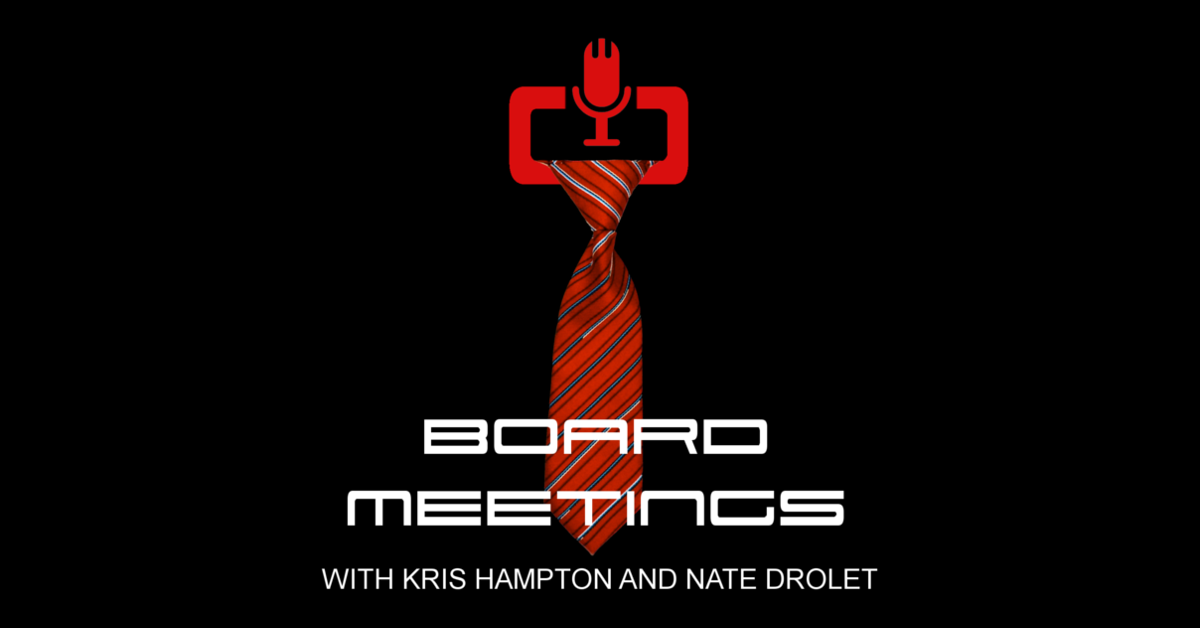




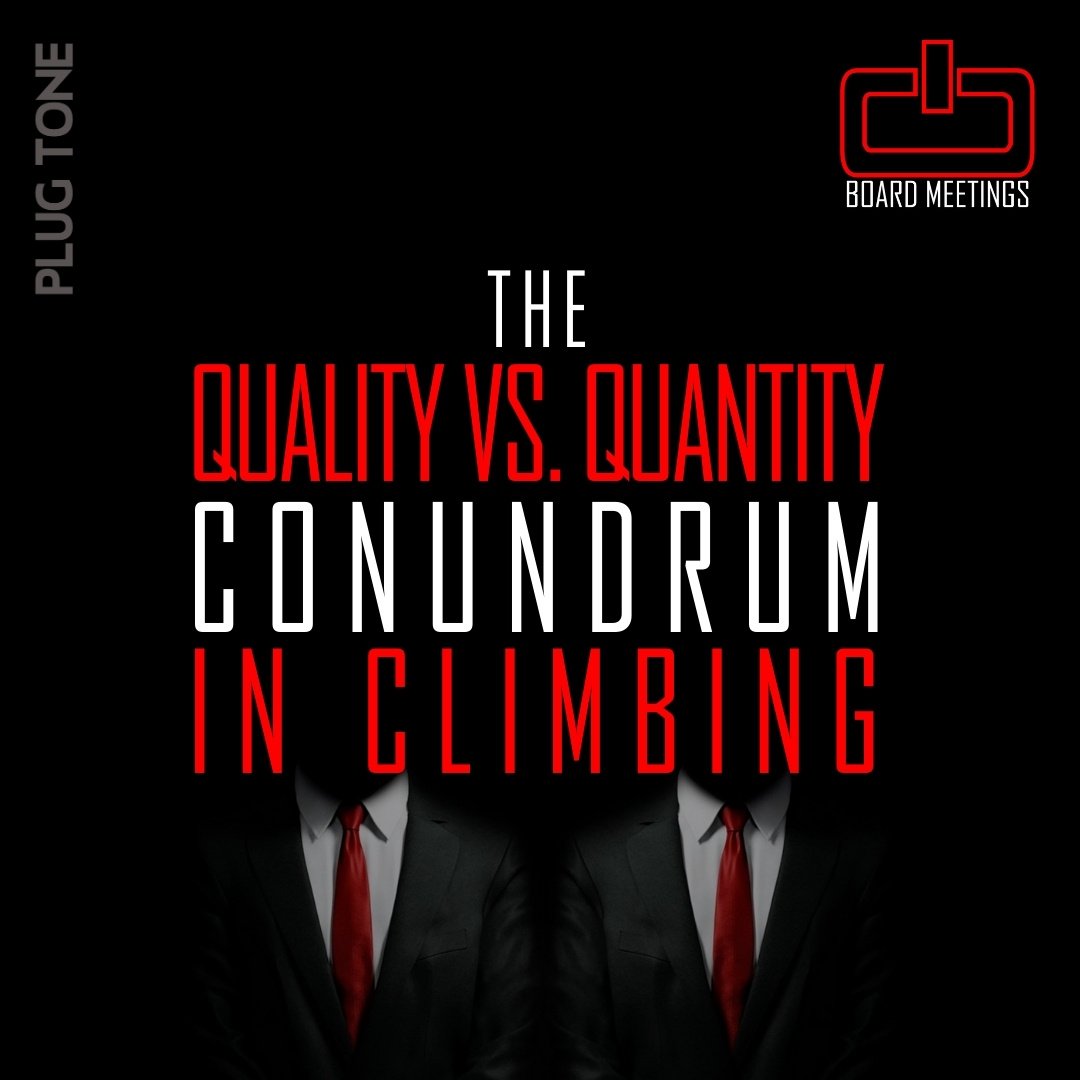

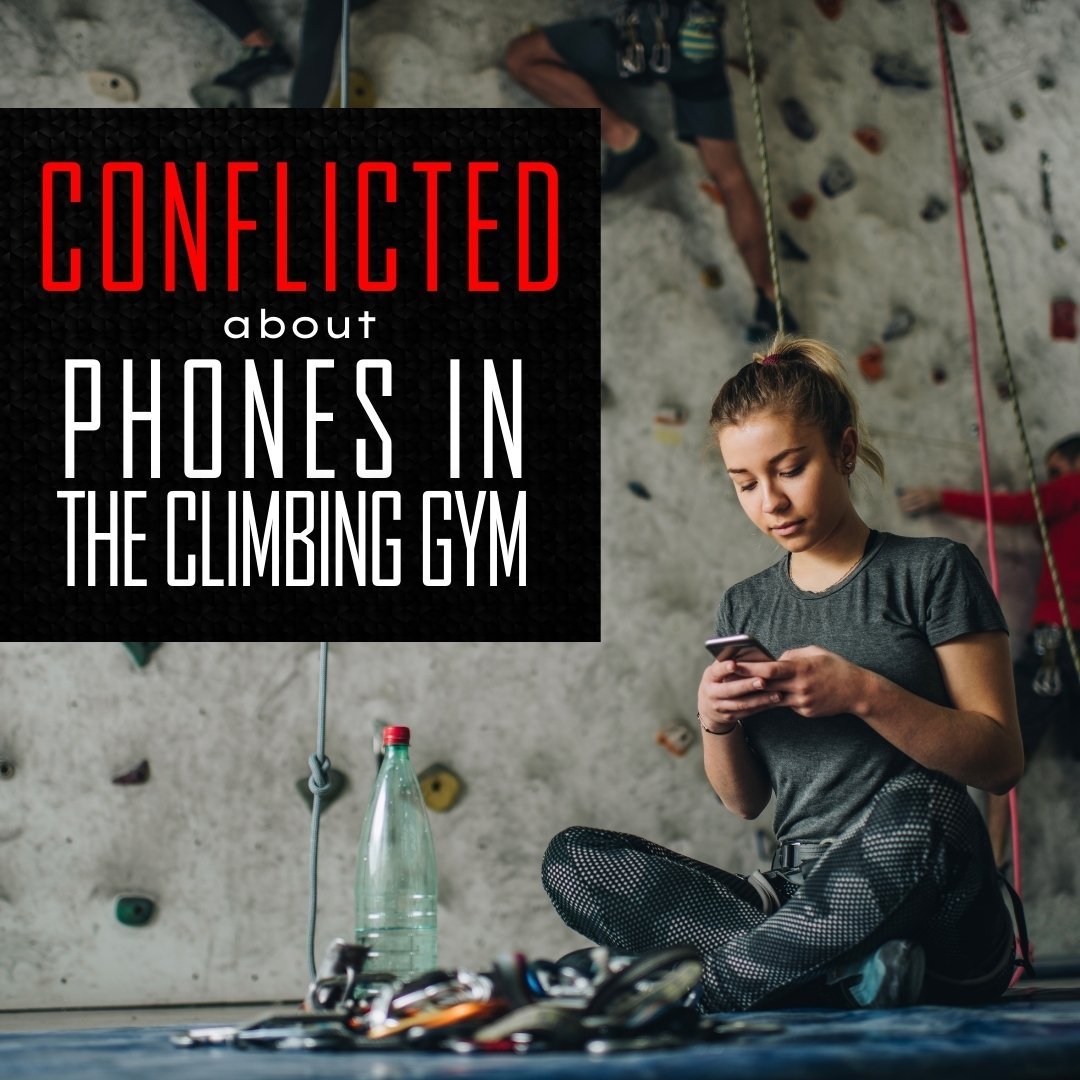
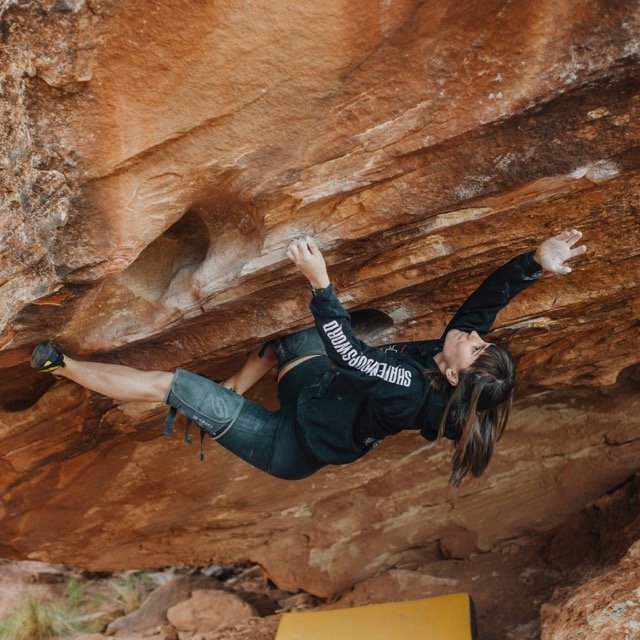

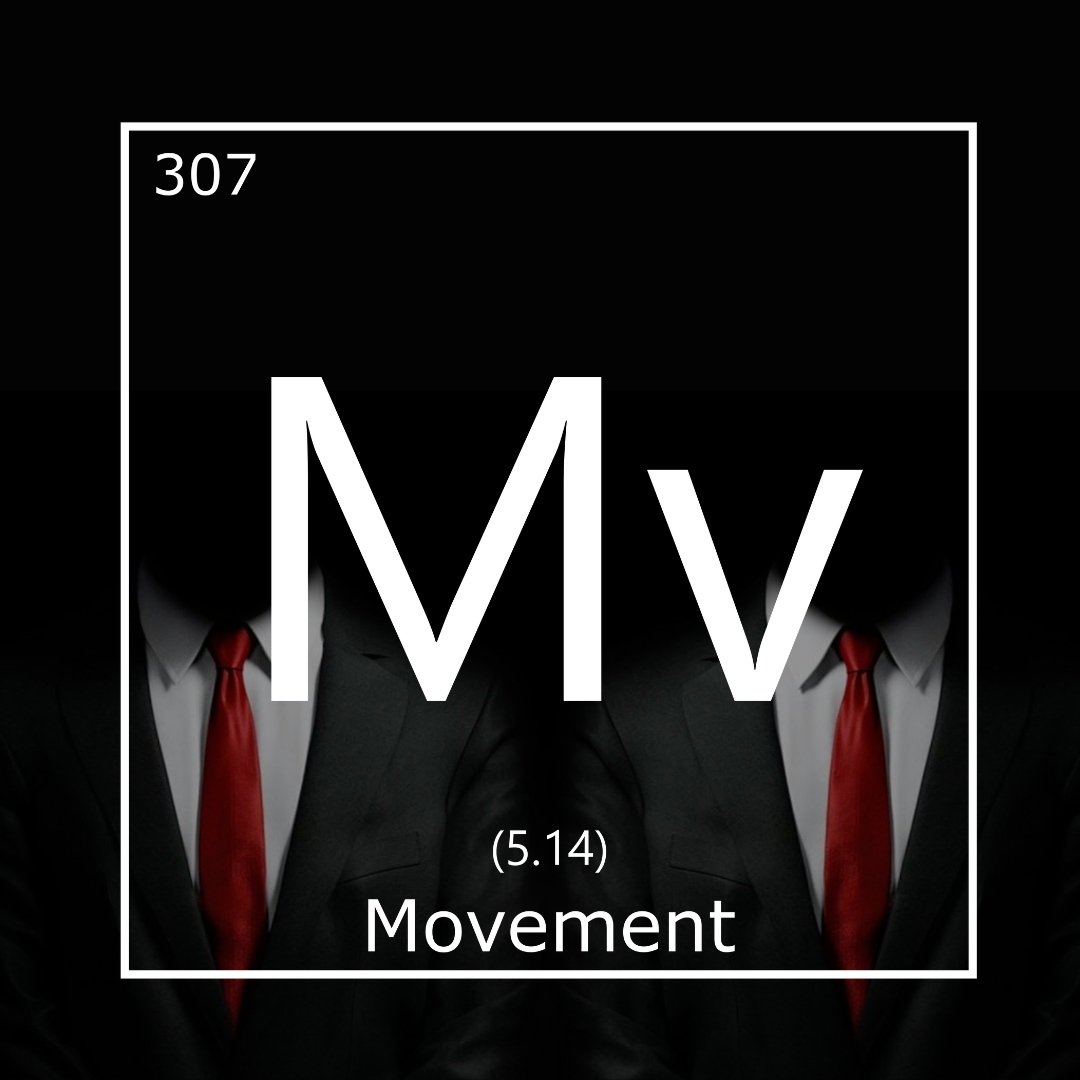
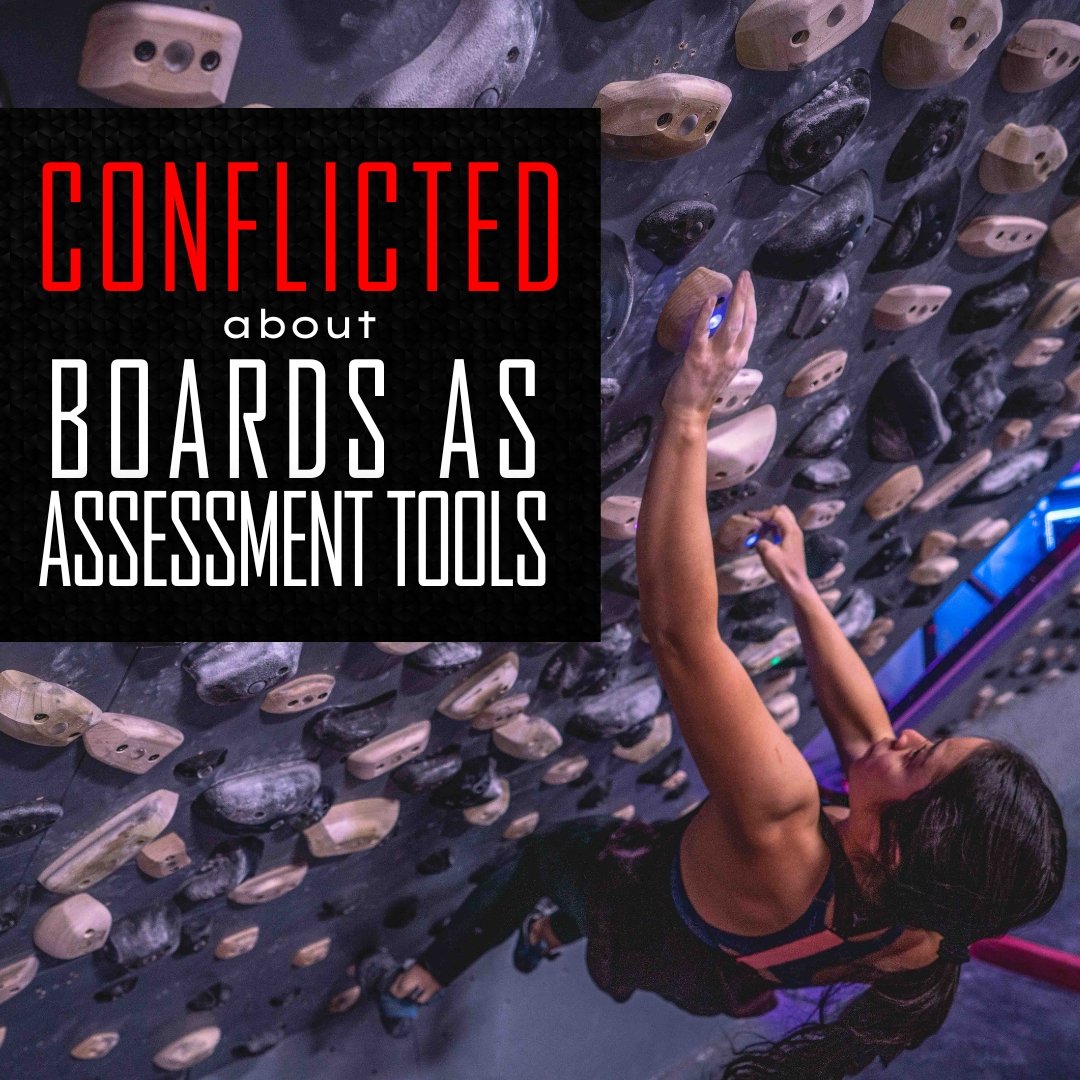
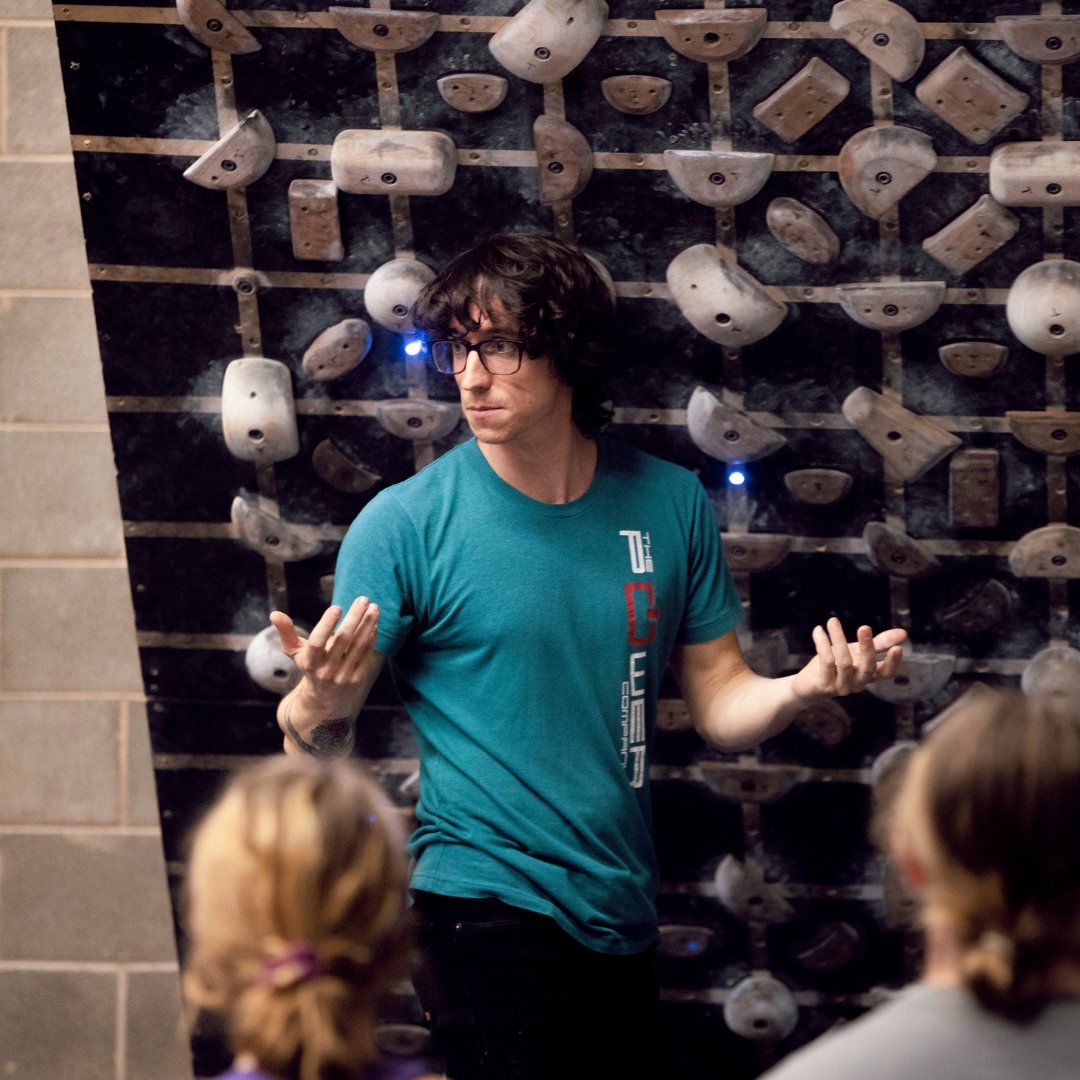
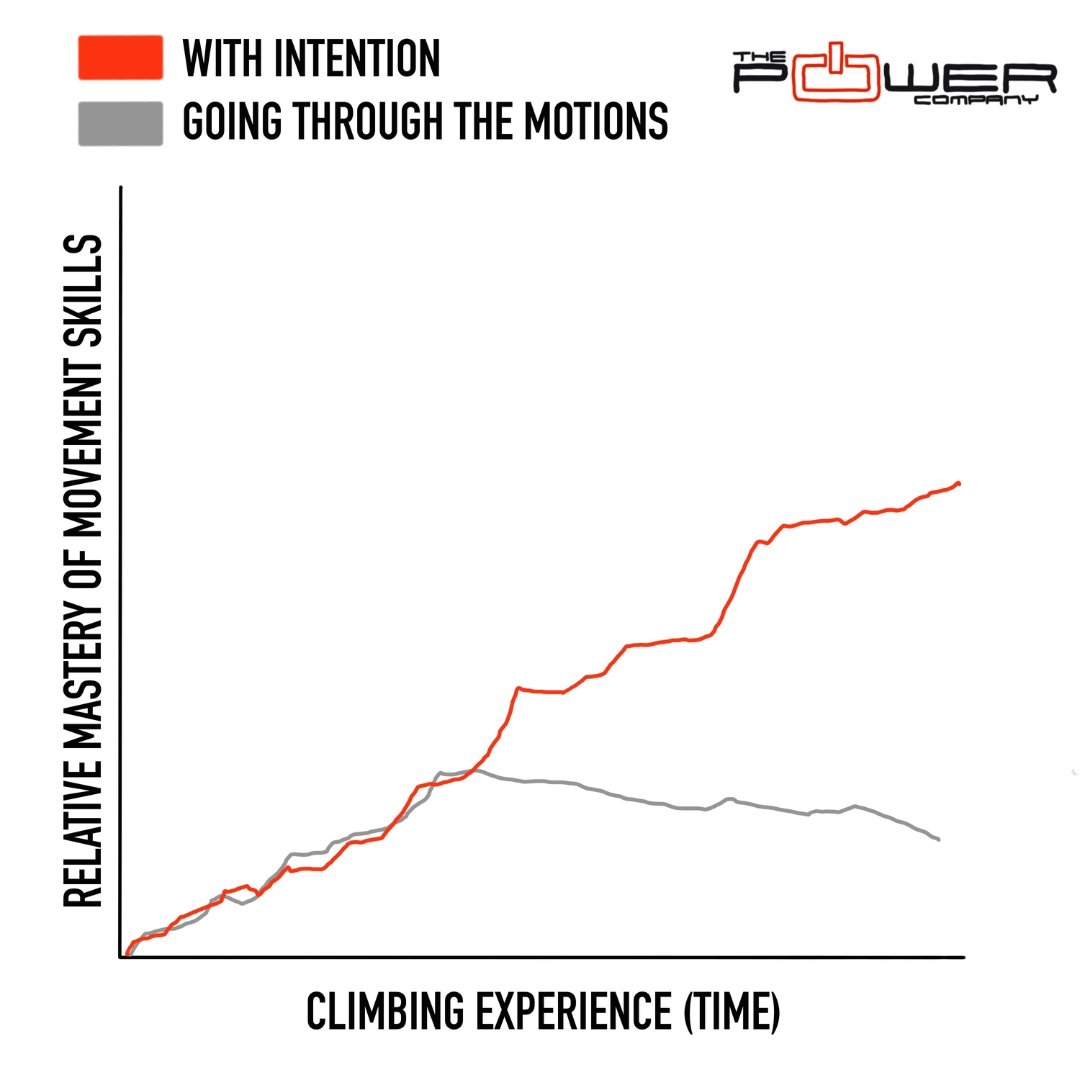




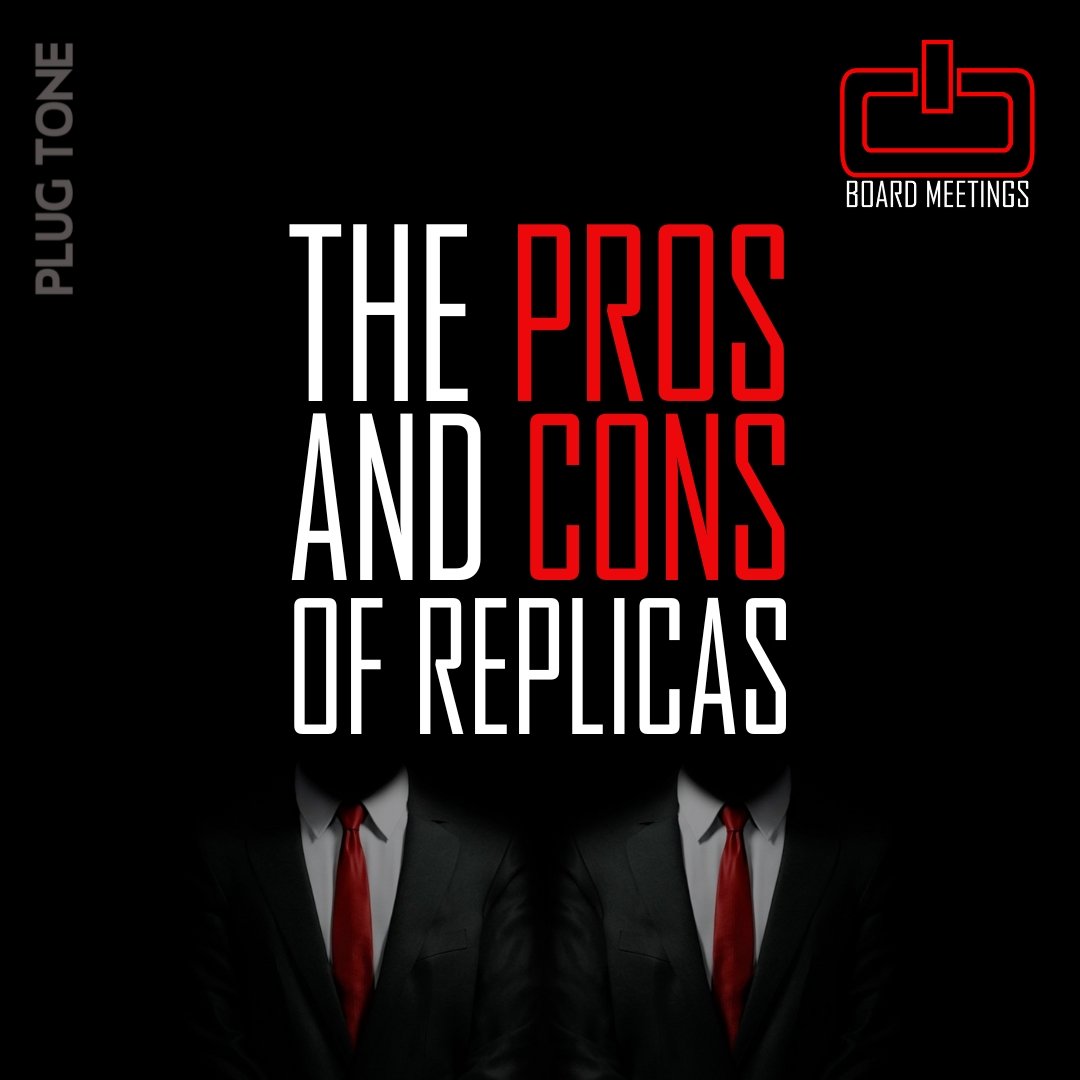


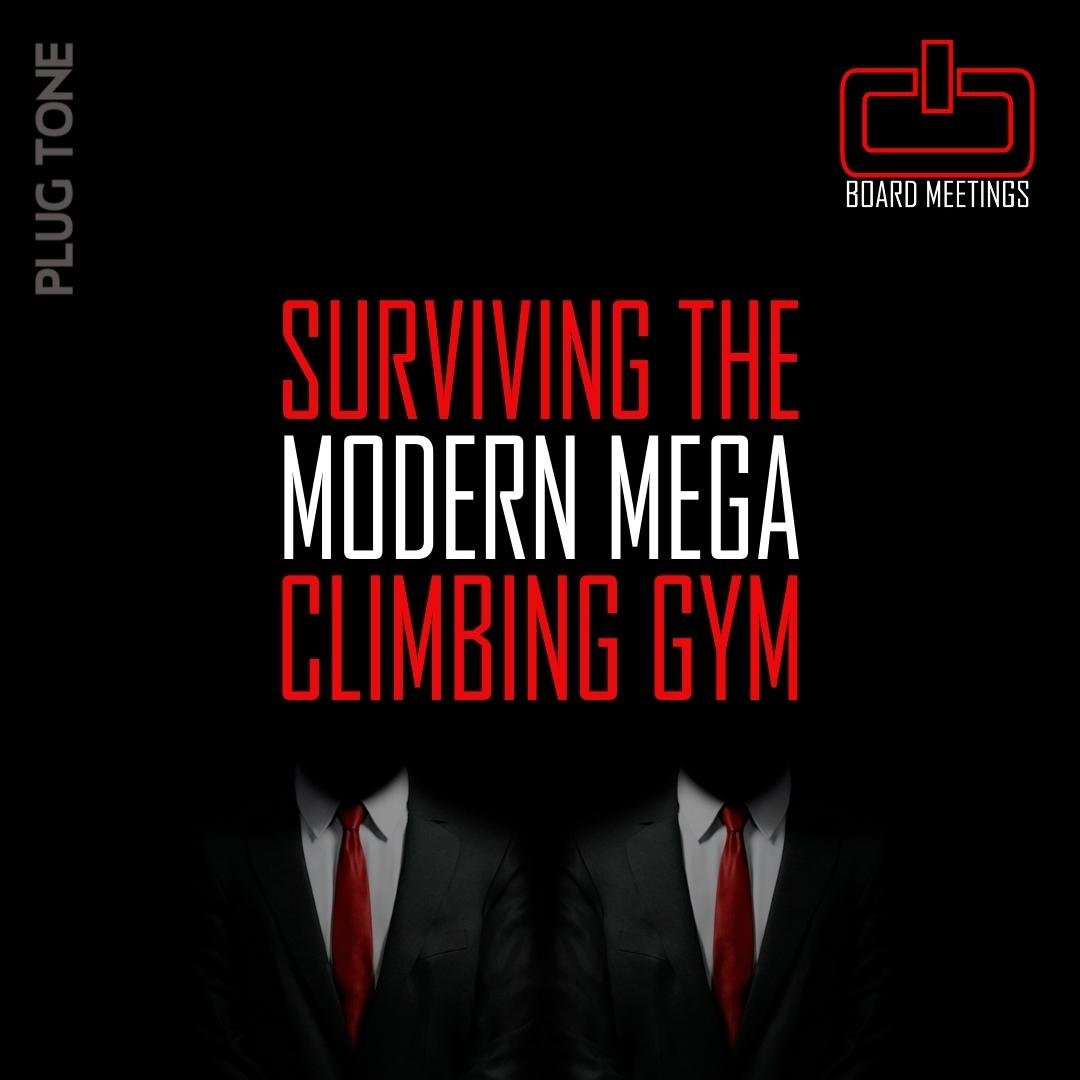


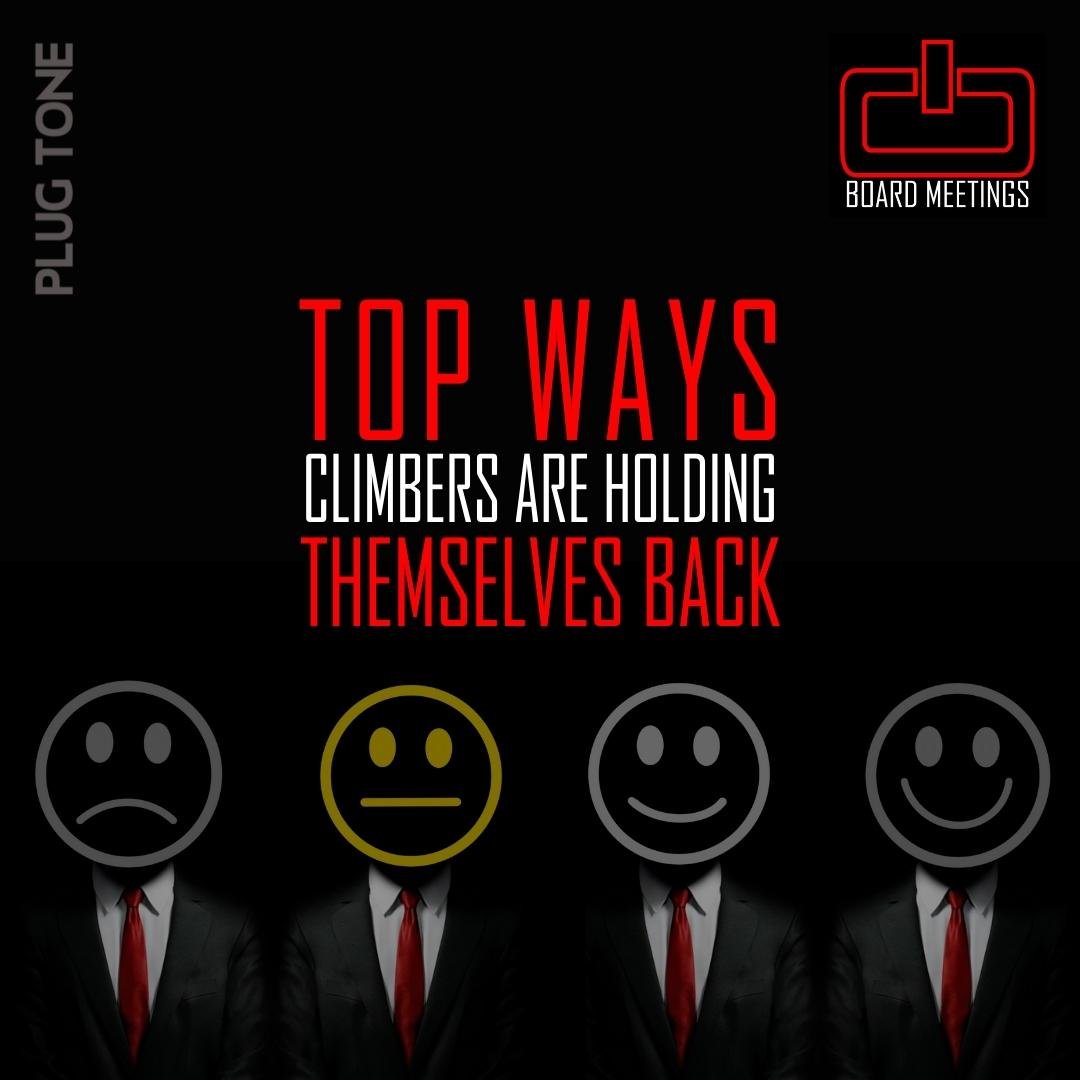



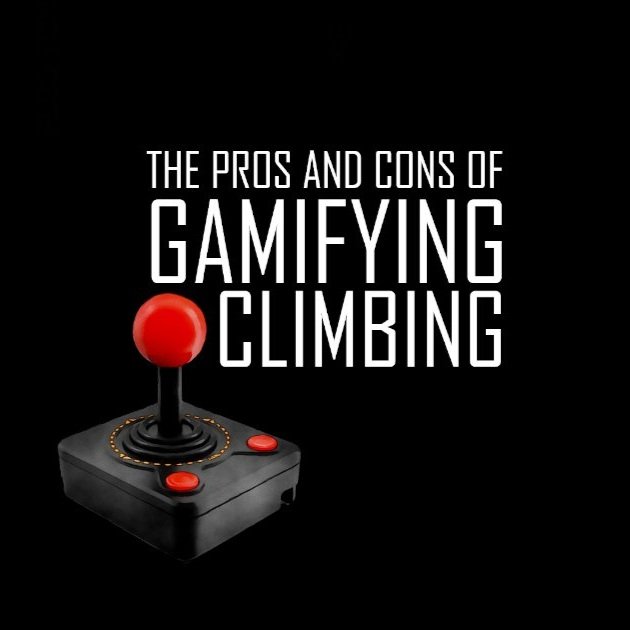


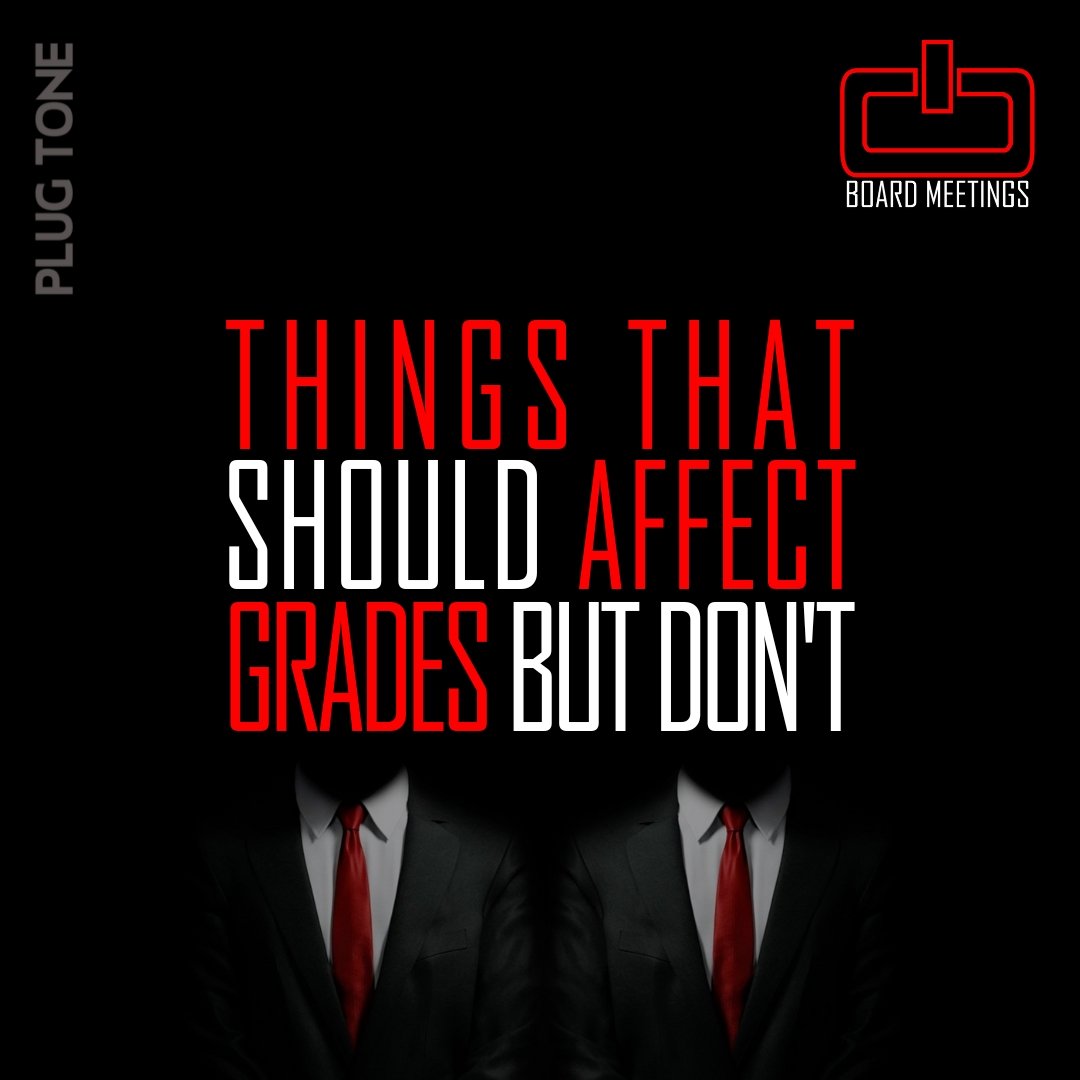
How do you know which is right for your situation?